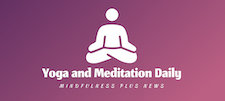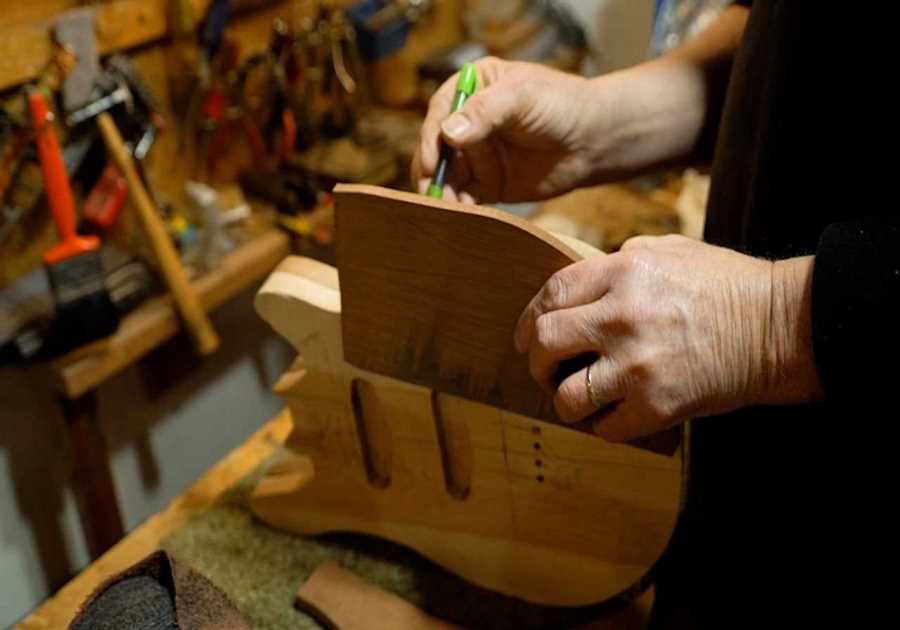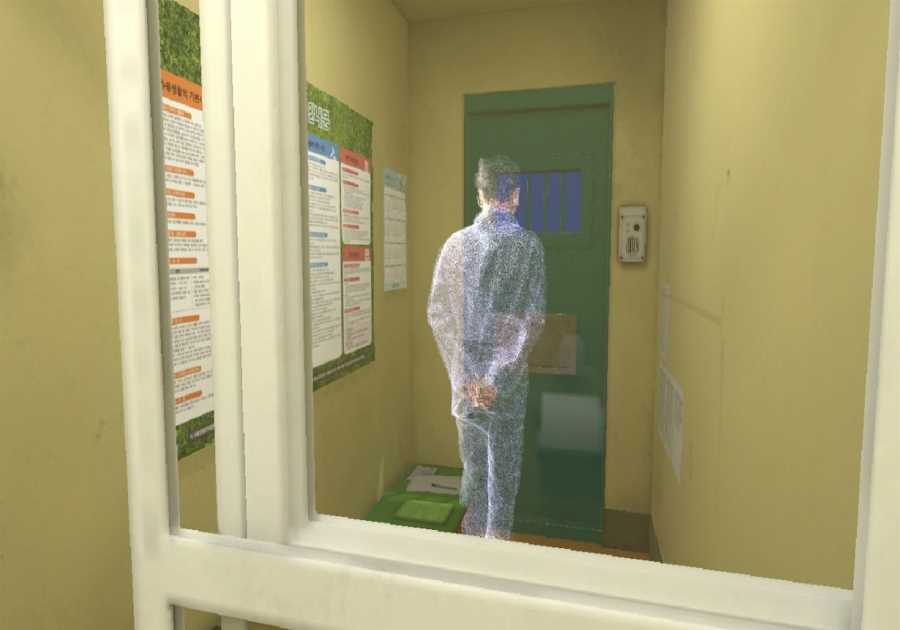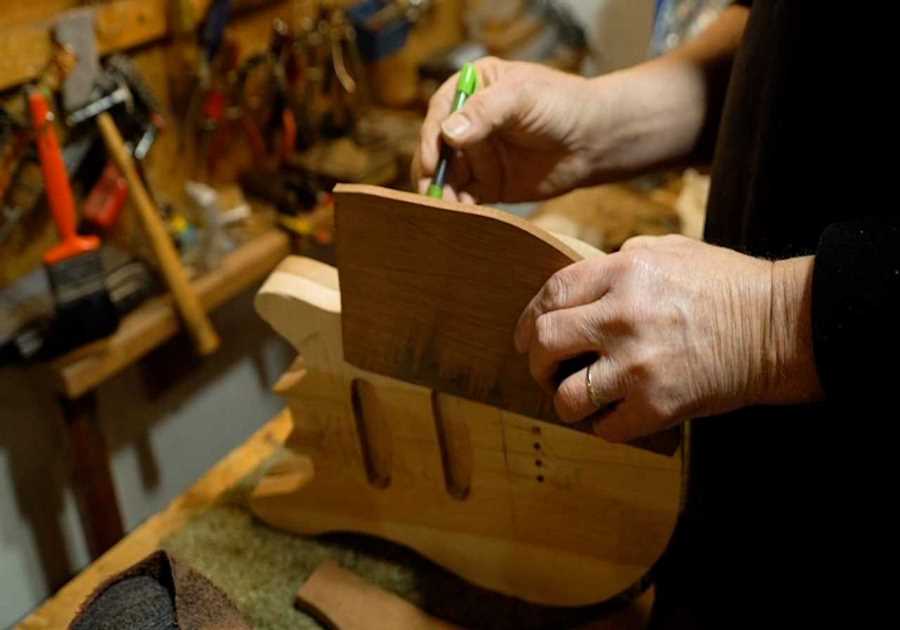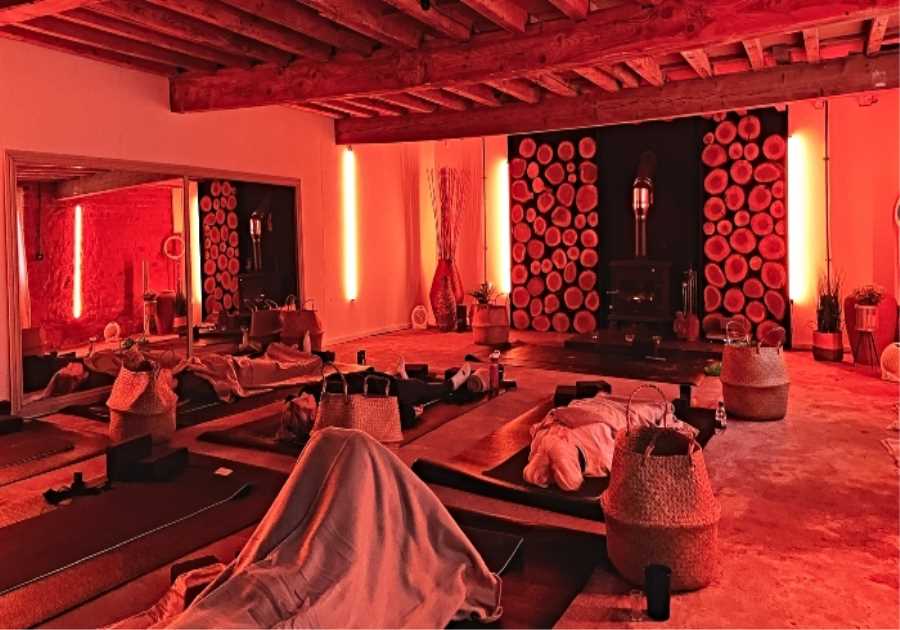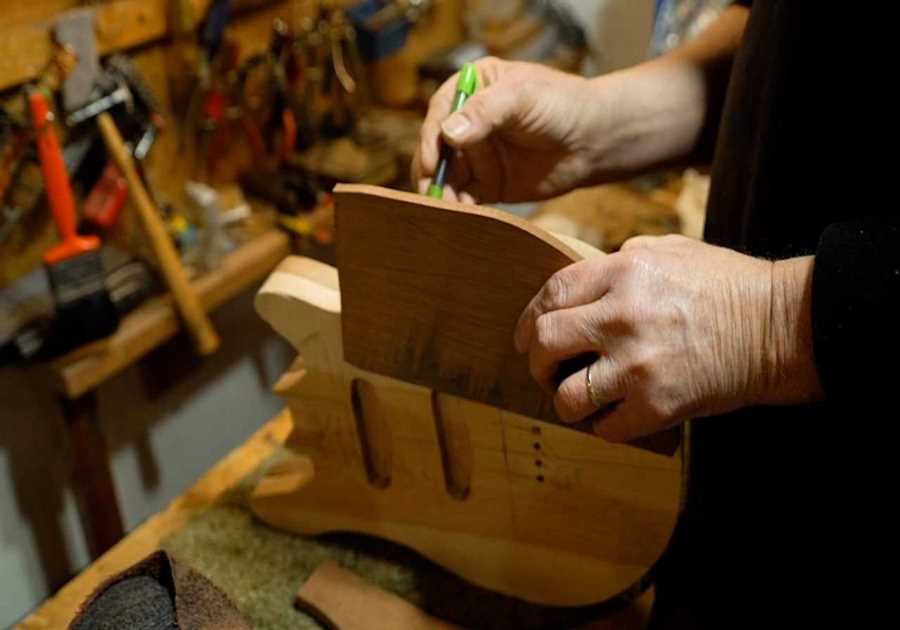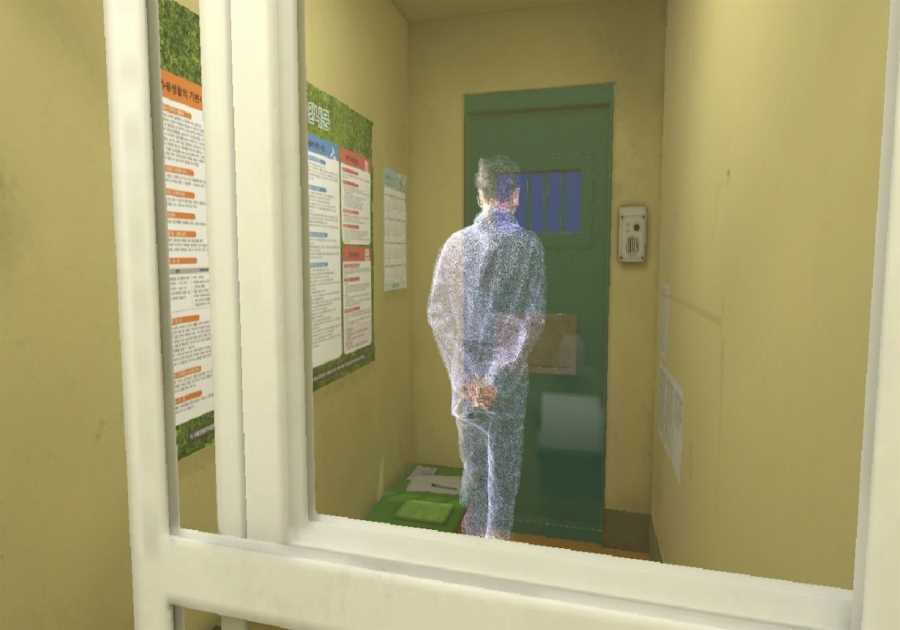“Irish unemployment rate at 13-year low of 4.8%,” read the headlines in January 2020. Economists predicted another strong year of employment growth.
There was “no indication that the employment boom is set to slow in 2020,” announced one economist. The only possible challenger to our economic wellbeing was Brexit and failed trade negotiations as well as a lack of workers in areas such as healthcare.
With a boom in employment, much like the Celtic Tiger years, traffic on the roads hit chronic levels and workers spent several hours a week commuting, instead of living or actually working.
Small businesses that had either recovered from the previous recession or had started because of it were gaining steady ground.
- – In February, engineer Gary Baugh began doing his job from his house, allowing him to be a more hands-on parent with his daughter, Pearl, says Joyce Fegan
- – After a two-year struggle to find a home for The Fat Fox, Claire Cullen and Rob Hallinan finally opened their Greystones cafe in 2020
- – Reformation’s owners have embraced the challenges of providing online classes
- – Executive coach Barbara Nugent says it’s important to make time to connect with people when you’re working from home.
Wellness and wellbeing were phrases that were thrown around as an appreciation of the importance of physical in-person connections became mainstream.
But by November 2020, unemployment had hit 21%, the country was in its second lockdown and words like Zoom, pandemic, coronavirus and PPE (personal protective equipment) were now our common parlance.
The world we had known had changed forever, the working world in particular.
Huge swathes of the workforce suddenly found themselves working from home, juggling childcare, home schooling and meetings. While this was incredibly stressful for many, there was one upside — men, who were working remotely, were getting to spend more time with their families than ever before.
A Central Statistics Office (CSO) survey carried out in April found men were reporting a greater level of satisfaction in life, including in their personal relationships, and were more likely to feel happier than women overall.
The Civil Service Employee Engagement Survey 2020 COVID 19 Remote Working Report was published today. Read the report here: https://t.co/iLsR3SR0ui .Read the press release here: https://t.co/aratZyAAXq pic.twitter.com/QNOh49WJGz
— Dept. PER IRL (@IRLDeptPER) December 23, 2020
While much focus was on the office or PAYE worker this year, our new shift to remote working meant self-employed people faced major upheaval too.
With more than 300,000 people registered as self-employed, micro-businesses (enterprises with between one and nine employees) make up over 90% of our businesses, according to a report from UCC Business School in 2019.
In that same report, it noted that just 34% of micro-businesses were using e-commerce.
All of that was to change in 2020, with bricks-and-mortar businesses, such as gyms and cafés, dependent on in-person interaction, needing to shift online to survive.
Joyce Fegan spoke to some of the people behind those businesses that shifted online for the first time to see how they survived 2020, as well as families who balanced home life with Zoom life, in order to chart our new lives.
One upside of the coronavirus pandemic is that parents, particularly fathers, have spent far more time at home with their children.
For new father Gary Baugh, an engineer with Intel, the shift to working from home has cut out 20 hours of commuting each week.
This has meant that Gary has witnessed many milestones in his daughter, Pearl’s first year of life, as well as being able to support his partner, Stephanie Prendergast, as she navigated life as a new mother and in a pandemic.
“I’m working in Leixlip, Kildare, and normally I would get up at 5.30am and not be back home until after 7pm,” says Gary.
Stephanie gave birth to the couple’s first child at the end of January 2020, so after Gary’s paternity leave was used up, he was back commuting four hours a day, but with a new baby at home.
“In the morning, I would cycle 10 minutes to the DART station, then take the DART to Connolly, wait five minutes there — that can sometimes feel like an hour on a cold winter’s morning — then I took the train to Leixlip,” Gary says.
“Once there, I had a 15-minute walk to work.
“Four hours is how long I spent commuting every day to work, so 20 hours a week,” says Gary.
Gary Baugh with his wife Stephanie Prendergast and their daughter Pearline Baugh. As a new family, the pandemic has helped them bond and find their own ways of parenting. Photo: Moya Nolan
The couple knew that this was going to be their family’s reality as soon as Gary’s paternity leave ended.
“We talked about it, we were OK with it,” says Stephanie.
Gary had approached his manager for a more flexible solution, before anyone had ever heard about Covid-19 and before working from home became everyone’s new normal.
“I had a flexible arrangement with my manager: Work one day a week from home; that was the compromise,” Gary says.
“I probably had a week of normal life like that, with the commute, before everything changed, and in that week I was calling Stephanie every lunch time to see if everything was all right,” Gary says.
“And when I got back to work, there was a pile of stuff on my desk, so you can’t be distracted, but I was thinking about them,” Gary says.
“I felt like I was missing out, as when I left the house, she was probably sleeping, and when I got back, it was pretty late.”
However, everything changed when the first case of Covid-19 was confirmed in Ireland.
“In February, when the first case was reported, there was one in Drumcondra and that was along my commute route,” Gary says.
“I was not going to take any chances with a young baby, and I said to my manager: ‘I will work from home until further notice’.”
Since February, that’s what Gary has done. He now has 20 more hours in his week, he is far more productive, he can get chores done around the house, and he plays with his daughter in the morning and has meals with her every day.
“When Stephanie is going to work, I get up and get Pearl ready for the day,” Gary says.
“Stephanie has time to exercise and Pearl has her breakfast and off they go. When they leave, I do a lot of chores — I’ll do the laundry and vacuuming — so when Stephanie comes back, there is nothing for her to do.
“It’s to reduce the stress as much as possible. I’ll have my breakfast and do some washing and ironing. I start work at 9am. That’s been working wonderfully,” Gary says.
“Then, when Stephanie comes home from work and has collected Pearl from the minders, we all have lunch together, as a family. I have Pearl sitting on my lap, stealing some of my burger. We found a routine that works,” says Gary.
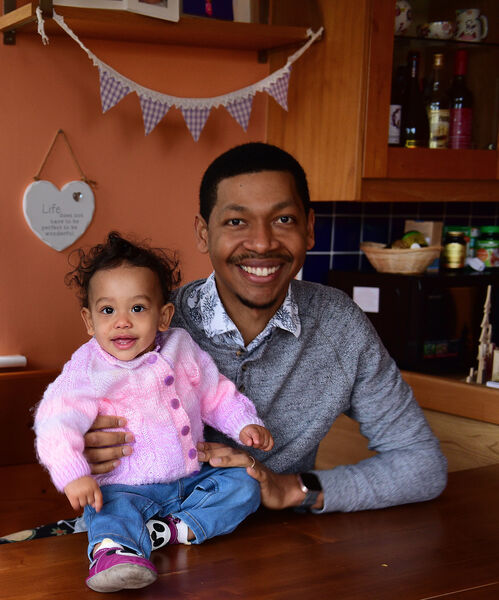
Gary Baugh and his daughter, Pearl. Picture: Moya Nolan
“One of the positives of this world crisis is it shows your employers that there is another model; my productivity has gone up, personally. I have an extra day a week,” he says.
For Stephanie, having Gary at home eased some of the challenges of the first year of motherhood.
“If there was something I needed to go and do, like have a shower or put on a wash or run out to the shops, and child-free, especially with Covid-19, Gary could take a 15-minute break, and I wouldn’t have to worry about ignoring Pearl,” Stephanie says. “The flexibility of it all has really helped, as babies are super unpredictable.”
However, it was more than the flexibility that Stephanie appreciated. “As a father, he got to see stuff he wouldn’t ordinarily get to see, like the banal stuff that you wouldn’t really sit down and talk about, like her standing at the dishwasher,” Stephanie says.
“But he saw it first-hand, because being told about those things is not the same as being there.
“I think they get to see a lot more of what goes on on a day-to-day basis; they see the stuff in the beginning, with some paternity leave, then they miss out when they get a bit older and they’re awake for longer and it’s more challenging and you have to fill your day,” Stephanie says.
“To see that the day-to-day is not just sitting at home, having coffee, looking lovingly into babies eyes, is important,” she says.
As a new family, the pandemic has helped them bond and find their own ways of parenting.
“With everything, you have to take the silver lining. This year has really been so difficult for everyone, but, fortunately, we’ve had so much uninterrupted time together,” Stephanie says.
“That expectation to host people or have a big first birthday party, or a big christening or naming ceremony, all of that went out the window. We had that time to figure us out as a family. Had it been ordinary, normal times, I don’t think we would have bonded in the same way.
“Just being together and discovering who we are as parents, with a lot less of that unsolicited advice from strangers, and you weren’t rushing around, we were just able to just be,” Stephanie says. “It made us realise what actually matters and the only thing that matters is family and Pearl.”
There is one thing that they have sorely missed because of the pandemic, and that is extended family, as Gary’s parents live in Jamaica, so Pearl has yet to meet her only grandparents.
“We’re holding our breath, because we want to go to Jamaica. My family are there, and they really, really want to see Pearl, so we are waiting for that reunion,” says Gary. For now, they have technology and not a day goes by when Pearl’s grandparents aren’t on WhatsApp, requesting their daily photo and video of their beloved granddaughter.
Famous on Instagram and a favourite with influencers and celebrities, 2020 was to be an exciting year of expansion and growth for Fat Fox owners Claire Cullen and Rob Hallinan.
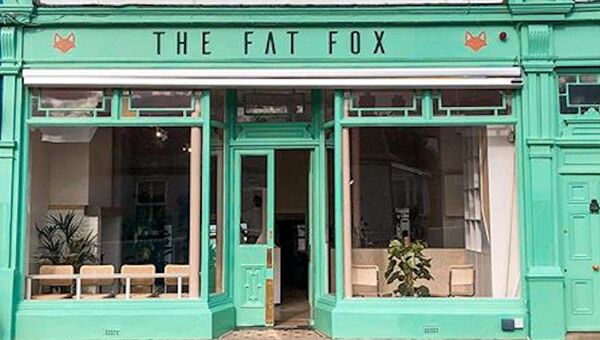
The Fat Fox cafe in Greystones where the owners had hoped to be able to seat 70 people at a time, but had to totally change because of the coronavirus pandemic.
Having started their brand and business in 2016 on Camden Row in Dublin, and being forced to close after two successful years of trading because the premise they rented was being sold, the popular coffee destination struggled to find a new home, that was until 2020.
“We had just got keys to the shop of our dreams in Greystones — a building we had always admired and walked past with our dog,” says Rob.
“We were full of excitement to have this sit-down cafe and to have it in the town we both grew up in. There’d be sunrise in the kitchen as the treats baked and then it set in the evening in the front,” says Claire.
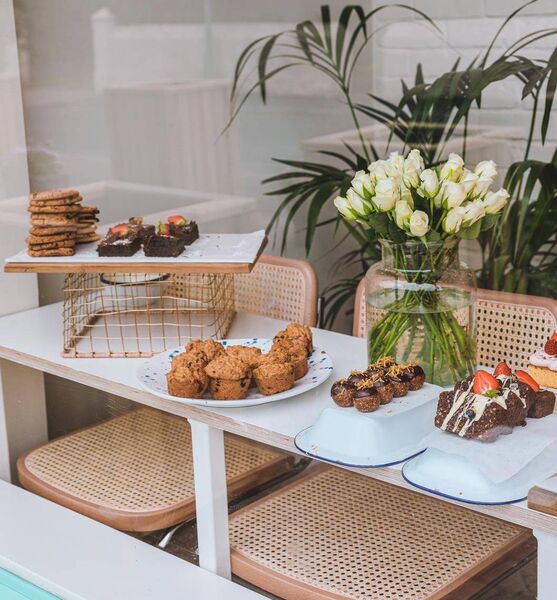
The Fat Fox opened its doors in Greystones in April and has ‘received phenomenal support’
In total, they would be able to seat 70 people at a time, including in the back garden and on the front patio.
However, as 2020 comes to a close, all of that furniture remains in long-term storage, as does the menu they had designed.
But somehow, despite a lack of support from the banking sector, their business survived and even new income streams opened up.
Together with the popularity of their drive-through coffee shop in Delgany, which they kitted out with a moving drawer to safely deliver drinks to their customers, as well as taking no salaries themselves, the couple managed to forge ahead with the opening of their dream cafe.
“We got the place finished without a loan, we sold our car and used our personal savings, injecting them all into business — that was a deposit for a house or a wedding,” says Rob.
When they finally opened in Greystones, they operated with a two-customer system and take-away only, and used their floor space to display the merchandise they had always sold online.
It is this merchandise that is now being sold all over Ireland, as well as their roasted coffee.
“For years we’ve sold all this stuff online — hats, jumpers, socks; you name it, we have it. It’s always something we had and it got a bit of traction when we put it in the shop. We kept it in the shop and now it’s become a thing.
“Our online sales skyrocketed, as well as our sales of coffee equipment and coffee beans,” says Claire.
Despite a gruelling and unpredicted year — have the couple learned anything worth keeping?
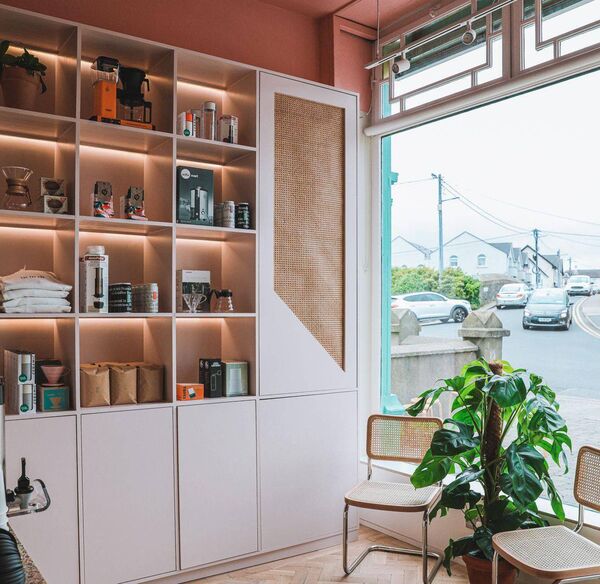
When the Fat Fox opened in April they used their floor space to display the merchandise they had always sold online.
“You always have to learn to adapt to the situation you’re in, you must continue to evolve. Everyone looked at this and said: ‘oh shit’. But like so many small businesses, we had to totally change,” says Rob.
For Claire, her partner’s risk-taking nature has finally rubbed off on her.
“Rob is the go-getter; if it doesn’t work you find another way — I’ve finally learned to bring that on board. I still have the fear. It’s OK to make mistakes, we’ve all done it, but it’s about moving on,” says Claire.
“And I think we’ve learned a lot from this as a country. The show of support for small businesses has been phenomenal,” adds Rob.
Last March, Reformation, a large pilates and yoga studio in Dublin centre had just celebrated a full year in business and they had had their best month on record.
One of its two female co-founders Lee Tracey, was five months pregnant too. And then the pandemic hit.
“I will never forget the phone call with our friend Pete, who rang me and my business partner, Lee the day before lockdown. ‘It’s looking serious girls, I think you will have to close. Have you heard of Zoom?’ A week later, we bloody knew everything about Zoom.
“In the space of seven days, we had gone from a thriving community-based studio to being online teachers, makeshift TV presenters and reluctant technicians. Bearing in mind Lee was five months pregnant with her first baby and we are a very new business this tested us more than we thought anything could,” says Annie, Reformation’s other co-founder.
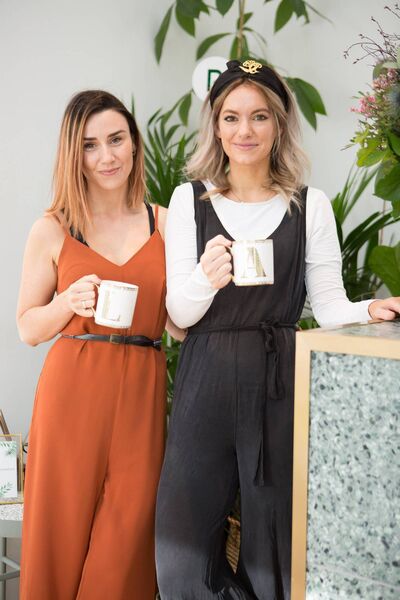
Lovingly created by Annie Kirwan and Lee Tracey, Reformation is a beautiful boutique studio in the heart of Ballsbridge.
“At the time Reformation had just turned one year old and we were celebrating a really strong first year. We had worked tirelessly and built a community of movement and mindfulness. Our weekends were filled with teacher training and alternative events like cacao ceremonies and sound baths.
“Our ethos was about bringing like-minded people together into our beautiful studio. A lockdown was the fabled spanner in the works but ground to a halt we had no option to adapt,” says Annie.
While the business owners felt “terrified” they simply did not have the time to indulge in panic.
“Moving online was both exciting and absolutely terrifying. But there was no time to be terrified. Our students needed us. We have had harrowing stories of loss, isolation and mental health declines.
The chats before and after classes became the highlight of my day,” says Annie, who having left a previous career, was now being reminded of it.
“In a strange twist of fate I before I became a yoga and pilates teacher, I was a molecular immunologist, researching how our bodies respond to infections. Suddenly the news was flooding with everything I had moved away from – my past colliding with my present,” she says.
April was perhaps the hardest month in hindsight, fearing that the years of study and business planning that had gone into their business was for nothing.
“I was prepared for the studio to be closed for a few weeks but as the reality of the timelines became clearer, the knot in my stomach was getting tighter and tighter. I think April was the hardest month for me. My appetite was completely gone and I spent the long hours of the night wide awake.
“I was so afraid everything we had built wouldn’t survive. Thankfully I had yoga and Lee to turn to – yoga to get me to sit still, to process and to stay present. And luckily Lee is the most calming, wise and rational presence and my rock through all of this. Our minds will always race to the worst-case scenario. I am particularly good at it, but yoga and Lee kept me together,” says Annie.
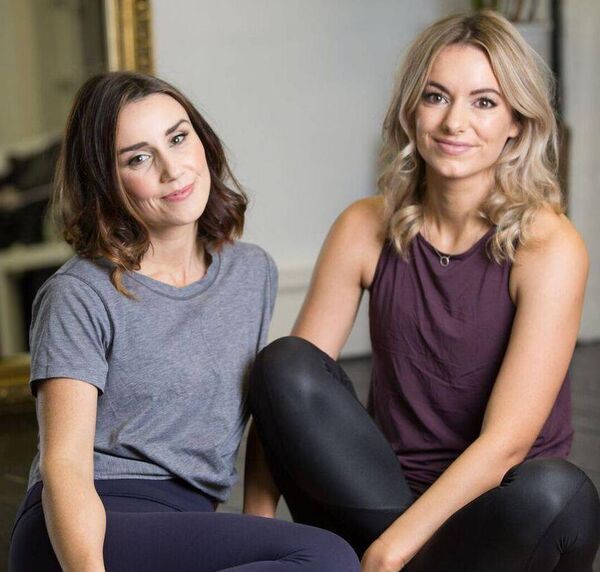
Lee Tracey and Annie Kirwan had to move their pilates and yoga business online after a successful first year.
After a month spent worrying, the business owners made a pact and May became a turnaround month for Reformation.
“Myself and Lee sat down and made a pact to send our energy forward into things we can control. When you stop making up stories in your head you have the space to think and create.
“By May we had created an online academy with on-demand classes, short courses in mindfulness, meditation and movement and had hosted a live Pilates training – remotely.
“The response was phenomenal and we were suddenly able to compete with the top studios in New York, London and Sydney. Our homegrown talent has a platform it wouldn’t have had before,” says Annie.
When lockdown was lifted they were now able to have two income streams.
“When our studios reopened we developed a hybrid model with our in-studio classes streamed live and people being able to virtually join in from all over the world. The future of classes had arrived, but for me it will always come down to connection. Whether you are in the same room as someone or not, you can create space for them and have a huge impact,” says Annie.
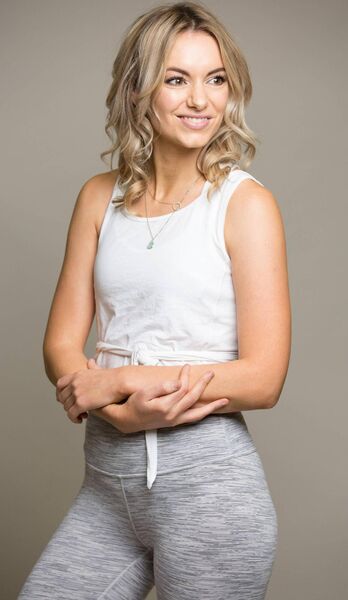
Annie Kirwan: “The pandemic could have broken us but instead has broken our barriers.”
2021 is a year they are looking forward to with optimism and a large lesson in resilience.
“As we pass into 2021 and I reflect on the year, the pandemic could have broken us but instead has broken our barriers – no longer confined to Ballsbridge, our goal is now worldwide.
“Resilience is our word for 2020. Like so many other small businesses we have been hit hard, repeatedly, in a year that has felt relentless. But we are stepping in 2021 with our heads held high, bruised and bit battered but ready to put the mass of lessons we have learned this year into use,” says Annie.
Barbara Nugent, who worked as a finance director for multinationals as well as for the EU Commission, started her own business six years ago as an executive coach to business leaders.
It meant her work was all about the in-person face-to-face interactions. Then Covid happened, and she found herself on Zoom, like almost every other office worker in the world.
“I had never coached anybody online before Covid. My office is wherever I am, I’d go to the city and I’d set up two meetings a day. I’d go to my client’s office and we would work together.
“But now the big difference is I’m on Zoom all the time. The thing about coaching is it’s a very, very personal thing. It’s hard to get those non-verbal cues, people might get upset, and if you’re not in the room it’s hard.
“It’s harder as you don’t have that sense of a person and how they’re really feeling if you’re not sitting beside them, it’s that of physical presence. It’s hard to sit in silence while they’re thinking about something over Zoom,” says Barbara.
Pre-Covid, her work also involved team coaching, something that also had to be taken online.
“I would do team coaching, I’d go up to their premises and we would play games and role plays and do smaller group work. Energy would be hugely important. I’ve done one or two over Zoom, and it’s such hard work as the group dynamic is a lot harder. It’s more formalised, the spontaneity is gone,” explains Barbara.
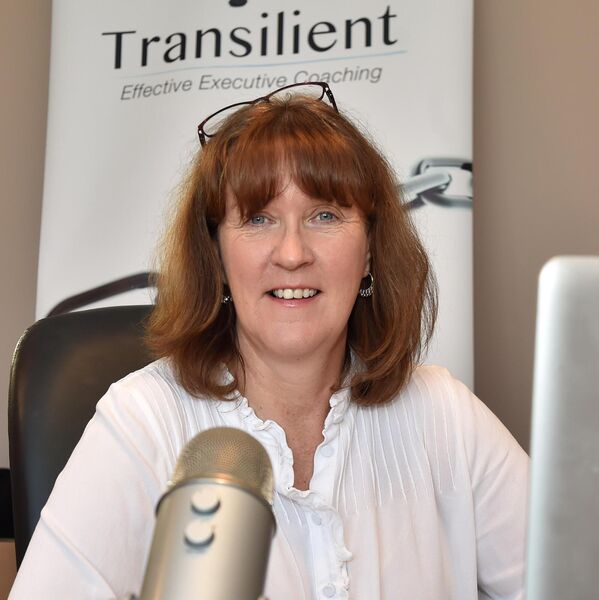
Barbara Nugent, director of Transilient Effective executive coaching, working from home in Clonakilty. Picture: Eddie O’Hare
As someone whose job it is to help companies and teams optimise, she has seen firsthand how online meetings affect people’s behaviour.
“One of the things on Zoom is that we’re often watching ourselves, maybe it is a reassurance of: ‘Is my hair ok?’ But what I do is I move the person right under my camera, so when I’m talking to them I am looking at them. I make sure I’m really connecting with them.
“Other things that are cropping up is that people under 40 won’t switch their cameras on. Some of it is just ways of working, so getting people to turn their camera on, or else to look at the screen as there are people working with two screens, so you’re looking at the side of their face and you’re trying to engage with them,” she explains.
Another issue is “side-messaging” or phone use, which is obviously noticed.
“In groups, you’re watching to see who’s engaging, and I had a session where you could clearly see that two people were messaging each other and corresponding and laughing. It’s hard to monitor that, because in real life you could just interrupt and ask: ‘Anything you want to share there lads?'” says Barbara.
Zoom etiquette aside, what are some of the challenges of working from home?
“Now we have a continuous day. One of the big things is drawing boundaries, people have slipped into working longer hours, it’s important I nearly finish work at x time and I’ll finish at that time.
“It’s got to be managed, I had to stop cleaning the house during the week. I do that at the weekend because I used to do that at the weekend. It’s a case of having to put the blinkers on, because you’re looking at jobs undone, it’s distracting,” says Barbara.
Another more serious downside to working from home is a sense of isolation, as well as spending too much time indoors in front of a screen without any human interaction.
“People are not taking breaks, they’re on Zoom all day. That’s terrible for your physical and mental health, it’s important to stick your head outside and get fresh air. People are working longer hours, they have flexibility and they like that, but it becomes a habit working until 10pm.
“And some people used to companies are feeling quite isolated. This zoom world suits some people great, most people find it OK, but some people find it very isolating,” she says.
Barbara, who ran a course on resilience during 2020, said getting enough sleep is fundamental in our new normal as is “managing your thoughts” especially if you work on your own all day.
Does she see Zoom replacing the office?
“I think ultimately it’s hybrid (a mix of home and office working) – that’s what people are saying. Some people need that separation between home and office and need to go out to work, but most people are not missing the commute. People will do two out of five days at home, and that will be a whole new thing for people to manage,” says Barbara.
- Barbara Nugent is managing director of Transilient Coaching and president of Network Ireland Cork, a not-for-profit organisation for women in business, professions and the arts.
